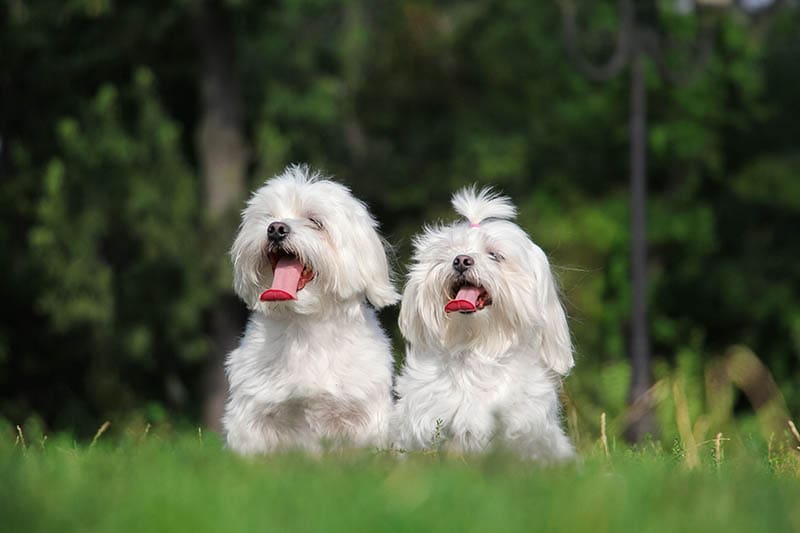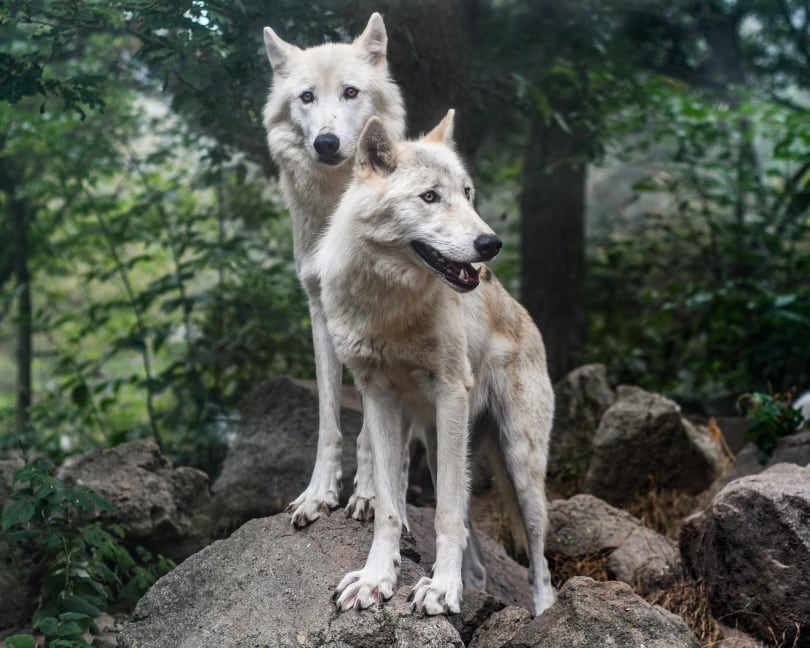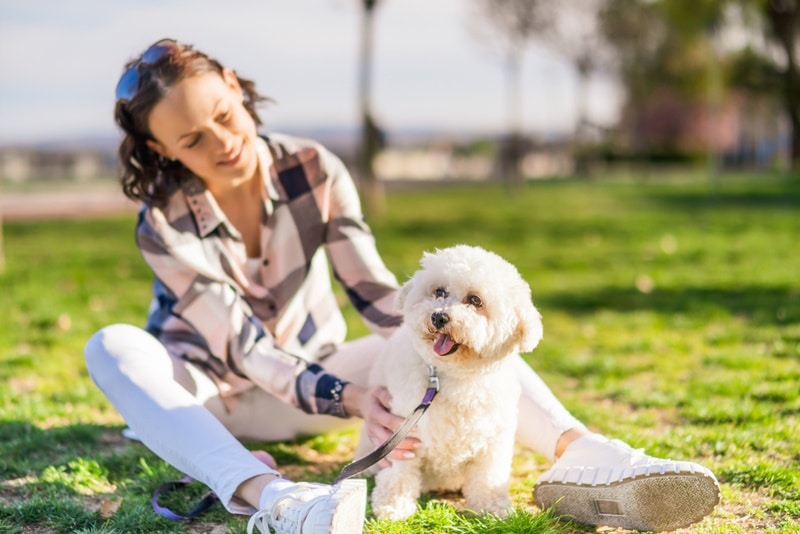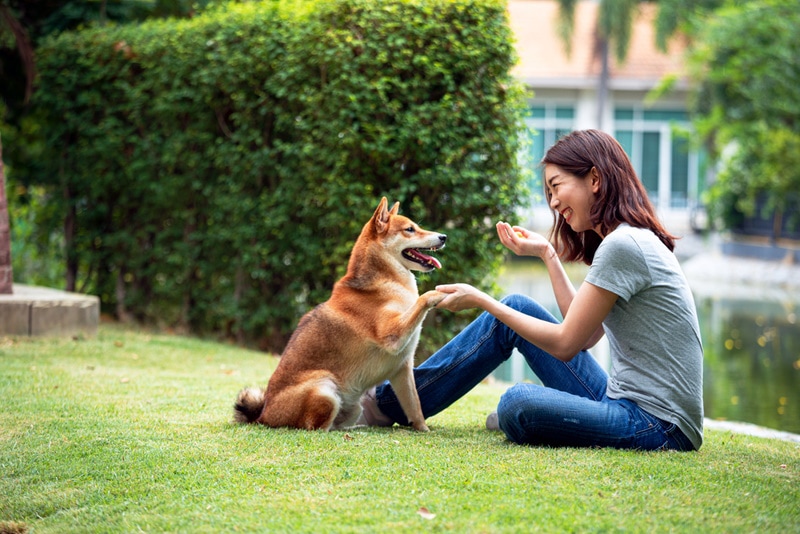Are Dogs Social Animals? Vet-Reviewed Science & Info
By Cheryl Regan
Updated on

Dogs are some of the most social animals on earth. You’ve probably seen this demonstrated in many ways—from excited doorway greetings to adoring gazes aimed at their owners; there’s a good reason these animals are known as “man’s best friend.” But a dog’s friendly nature is not just down to conditioning. Studies prove that this animal’s hypersocial behavior may actually be written in its genetics!
Dogs establish relationships with those around them—both human and animal—through giving and receiving care and affection, and by cooperating. In this article, we’ll delve a little deeper into the social behavior of dogs, and explain what makes them some of the world’s best companions!
Why Are Dogs Such Social Creatures?
Ancestry
Like their descendants, the wolves, dogs are also pack animals. In the wild, a pack will work together to hunt for food and to protect its territory, and in domestic situations, a dog will consider its owners and its human family to be members of its pack.
A dog’s pack mentality is one of the factors that makes it such a social animal. They crave the companionship of their pack members and feel safest when they know everyone that they care about is close by.

Empathy
Dogs are excellent at sensing their owner’s moods. Not only do they recognize different words, but they can also identify the different emotions behind each word, and from that, they can interpret how their owner may be feeling. In fact, just the sound or tone of your voice can help your dog read your emotions!
A scientific paper published in 2018 1 explains that “…dogs not only feel empathy towards people, but in some cases also act on this empathy.”
What makes dogs even more social is that they also receive—gladly—the emotional support that humans give them, be it through praise, physical affection, or treats.
Communication
For an animal to be considered social, good communication is vital. Not only do dogs have an intricate system of communicating their emotions with other dogs and humans—for example, through wagging their tails, flattening their ears, changing their postures, and even vocalizations, but they’re also exceptionally good at reading expressions on human faces!

Genetics
It is widely accepted that dogs are hypersocial in comparison with their ancestors—wolves. Although it was long believed that this was down to conditioning, a study in 2017 demonstrated that dogs may be genetically predisposed to being more social2. Specifically, it is the presence of GTF21 and GTF21RD1 genes that makes dogs more likely to form stronger bonds with social companions 3.
Puppy Socialization
Dogs may be predisposed to being friendly and sociable, but without early socialization to help puppies learn how to interact with people and animals, they can develop a variety of behavioral issues, such as anxiety or aggression.
From around the age of 3 weeks, puppies will begin to seek interaction with other dogs, or people, who are close by. Between the ages of 3 weeks and 16 weeks, puppies are most receptive to learning how to interact with others and adapt to different environments. During these first few crucial months of a puppy’s life, they should be given the opportunity to experience a range of settings, interact with people and animals, and experience different sights, sounds, and smells in a safe way.

Conclusion
Dogs are incredibly social animals. These intelligent creatures not only communicate how they feel with their owners, but they’re also attentive and sensitive to how humans and animals around them may be feeling. As pack animals, dogs naturally crave being near the people or animals that they care about.
Proper socialization during a puppy’s first few months is vital to nurturing a confident, sociable, and well-adjusted dog.
Featured Image Credit: Madeeva_11, Shutterstock















